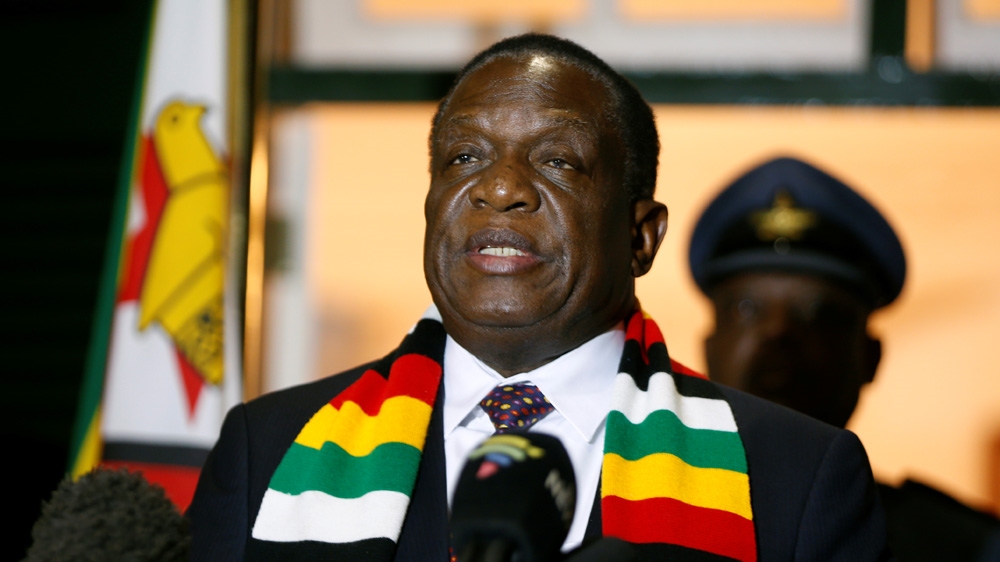President rallies Africa to promote agric trade
African leaders must develop mechanisms for promoting effective intra-Africa trade in agricultural products and food to improve markets for farmers and boost the countries’ economies, President Mnangagwa said yesterday while opening the 31st FAO Regional Conference for Africa Ministerial Session in Harare.
The conference running under the theme: “Agricultural and Rural Transformation in Africa: Promoting Inclusive Agribusiness and Regional Integration for attainment of Sustainable Development Goals”, is being hosted and chaired by Zimbabwe on a virtual platform.
The event gives an opportunity for participants to discuss priority issues concerning food and agriculture on the continent ahead of the deadlines for achieving Sustainable Development Goal 2 — Zero Hunger by 2030 — and meeting the African Union’s Malabo targets on food security and nutrition by 2025.
More than 80 ministers and deputy ministers from more than 45 countries are taking part, as well as representatives from observer countries, donor organisations, civil society and the private sector.
President Mnangagwa expressed concern that intra-Africa trade in agricultural and food products had remained low despite African member states having entered into bilateral, sub-regional and regional trade agreements.
“This is a cause for concern. Mechanisms to promote effective intra-Africa agri-food trade must be developed towards ensuring food security. Measures which promote intra-Africa agri-food trade must be simplified to improve convenience to our farmers.
“Let us also work to improve digitisation of agricultural processes and promotion of regional value chains. There is need to develop and modernise our logistics sector. In this regard, air and road networks will ensure the speedy movement of inputs and farm produce in line with our regional and continental integration agenda,” he said.
The President urged regional economic communities to fully exploit complementarities and cooperation to boost agricultural growth, development of agro-industries and intra-Africa trade.
He emphasised the importance of the creation and strengthening of appropriate policies and institutions to facilitate private investment in agriculture, agribusinesses and agro-industries.
“We must develop transparent and implementable programmes to boost resilience of livelihoods and production systems. Mutual accountability for our actions and results to climate variations and other related basics is also key,” he said.
He said it was important for agriculture programmes to be farm centred and knowledge based with the potential of women and youth harnessed for food security and sustainable development to be a reality.
“This will also lead to the realisation of development which leaves no one behind and lifts the majority of our people out of poverty.
“My Government recently launched the Agriculture and Food Systems Transformation Strategy which will be implemented through the Agriculture Recovery Plan, Livestock Growth Plan and Agriculture Development Growth Plan as well as the accelerated Irrigation Revitalisation, Rehabilitation and Development Plan.
“My country’s agriculture and food transformation agenda is prioritising and supporting research, innovation and mechanisation towards the modernisation of agriculture for improved production productivity and profitability,” he said.
On the negative impact of climate change on agriculture and the economy, the President encouraged the strengthening of efforts to increase the effectiveness of modern water harvesting techniques and irrigation.
“It is important for us to strengthen modalities for research, development and diffusion of new technologies and indigenous knowledge systems across the public and private stakeholders.
“The need for industrialisation of our economies and value addition of products must further spur our cooperation for transformation of our agriculture sector,” he said.
He challenged delegates to draw from the varied backgrounds for participants and speakers towards developing positions reflected to respective national programmes and plans.
FAO’s director-general, Qu Dongyu, said Africa remained his key priority as the organisation’s leader.
“Africa is a continent of untapped potential and remains a key priority for me. Agri-food system transformation will determine the continent’s success in addressing political, socio-economic and environmental concerns.
“This is why I consider it of utmost importance that the deliberations and outcomes of this renewed Africa Regional Conference be strongly connected to the African vision, as expressed in the Malabo Declaration on Agriculture Transformation in the framework of the Comprehensive Africa Agriculture Development Programme (CAADP) as well as the Agenda 2063,” he said.
Experts have already noted that climate change makes regional trade in Africa even more critical. One example is that El Nino events tend to generate near-drought or drought in Southern Africa but boost rainfall in East Africa with La Nina events doing the opposite.-herald.cl.zw









